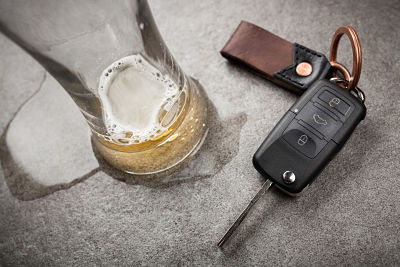In Texas, a police officer does need definitive proof of drunk driving before initiating a traffic stop that ultimately leads to a DWI arrest. The law only requires “reasonable suspicion” that the defendant is possibly engaged in some sort of criminal activity. In other words, if the officer can articulate specific facts that led him to reasonably conclude the defendant was breaking the law, it is okay to go ahead and detain the defendant. If it then turns out the defendant is actually breaking another law, an arrest on that offense is valid.
Court: 911 Call Enough to Give Officer Grounds to Detain Driver
A recent Texas appeals court decision, Young v. State, illustrates how these principles can work in a DWI case. This particular case began with a 911 call. An Uber driver told the 911 dispatch operator that she was “pretty sure” a dark sedan with a broken headlight had been following her for the past 20 minutes.
An officer responded to the call and identified the sedan. After the sedan’s driver–the defendant in this case–changed lanes, the officer initiated a traffic stop. During the course of the stop, the officer believed the defendant was intoxicated. When the defendant declined to take a field sobriety test, he was arrested and charged with DWI. A subsequent blood test determined the defendant had a blood-alcohol level of more than 0.15 percent.

Prosecutors charged the defendant with Class A misdemeanor DWI. Before the trial court, the defendant moved to suppress the results of the drug test, arguing the officer’s initial stop was illegal because he lacked “reasonable suspicion” that the defendant was possibly committing a crime.
Both the trial court and the Court of Appeals rejected the defendant’s argument. As the appeals court explained, the defendant’s “questionable behavior was enough to provide reasonable suspicion.” Specifically, the 911 caller’s report the defendant was following her provided sufficient facts for the officer to suspect the defendant was in the process of committing a crime. The officer testified before the trial court that “it was highly unusual for a stranger to be following a woman for twenty minutes at 11:00 p.m.” The officer said he was “concerned that a domestic violence or stalking situation was brewing, or perhaps a carjacking or assault.”
Although the defendant was not doing any of these things, the appeals court said the officer was still justified in conducting the traffic stop. Neither the office nor the prosecution needed to “establish” the defendant was actually in the process of committing another crime. It was enough to show “that some activity out of the ordinary has occurred, some suggestion to connect the detainee to the unusual activity, and some indication that the unusual activity is related to crime.”
Speak with a Houston, League City, and Galveston DWI Lawyer Today
Many DWI arrests begin with traffic stops initiated for different reasons. If you find yourself in this situation, the best thing you can do is remain silent and contact a qualified Houston DWI defense attorney as soon as possible. Call the Law Offices of Tad Nelson & Associates today if you need immediate legal assistance, (281) 280-0100.